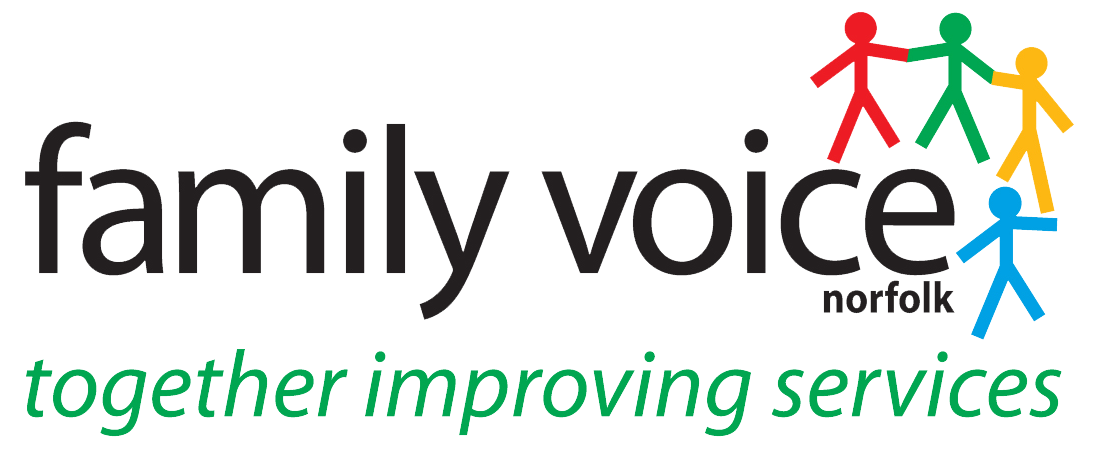Co-production
Co-production is where everyone works together on an equal basis to create a service or come to a decision that works for them all.

This suite of six leaflets was co-produced by the Local Offer and Family Voice Norfolk as straightforward introductions for families to key SEND issues.
Family Voice Norfolk believes that working in co-production with the local authority, health services and service providers is the best way to improve experiences and outcomes for families with children and young people with special educational needs and/or disabilities (SEND) in Norfolk.
It means that we are not simply consulted about proposed changes but play an active part from the very beginning in finding new ways to make our families’ lives better.
Find out what the Local Offer has to say about co-production and join us in signing up to the Pledge for Co-production.
This is also where to see a short video about co-production, co-produced (of course!) with Family Voice Norfolk and filmed, cut and edited by a young man with SEND.
We have also set out our ten top tips for co-production, explaining why we think it’s so important and how partners can ensure it works well.
Ten top tips for co-production
These tips help ensure that everyone can participate on an equal footing, and what is important for parent carers is often just as useful for other partners.
- The people who use services are a real asset. They are not asking for the moon but can help ensure that services are as effective as they can be within the parameters we are all working within.
- An inclusive atmosphere in meetings, where all contributions are welcomed, will encourage effective working together.
- Everyone’s opinion should have equal value and respect.
- Try not to make assumptions about others’ viewpoints. Explore, clarify and ensure that relevant information and experience is shared.
- If someone’s views, position or acronyms are mystifying, ask them to explain!
- Meeting times before 9.30am, or after 2.30pm, or during the school holidays may be difficult for parent carers.
- Practical details like car parking are critical if participants are dashing from/back to family life.
- Supplying agendas, papers and minutes to all participants in a timely manner makes meetings more effective.
- Setting future meeting dates in advance is helpful to everyone in organising work and ensuring that momentum is maintained.
- Working in a traditional way may bring traditional solutions. Working in partnership opens the door to innovation and new ways of looking at familiar challenges. Why wouldn’t you?
